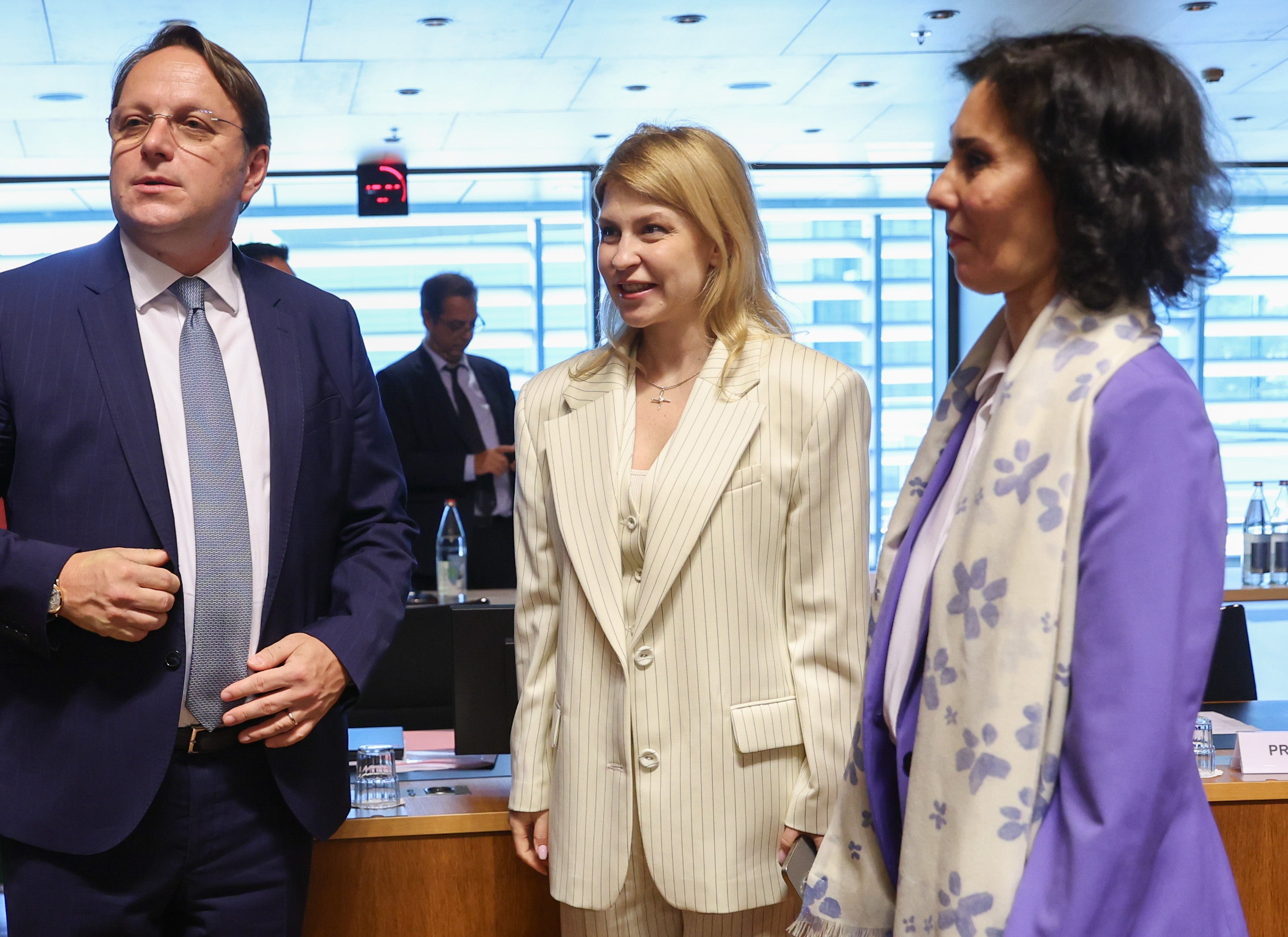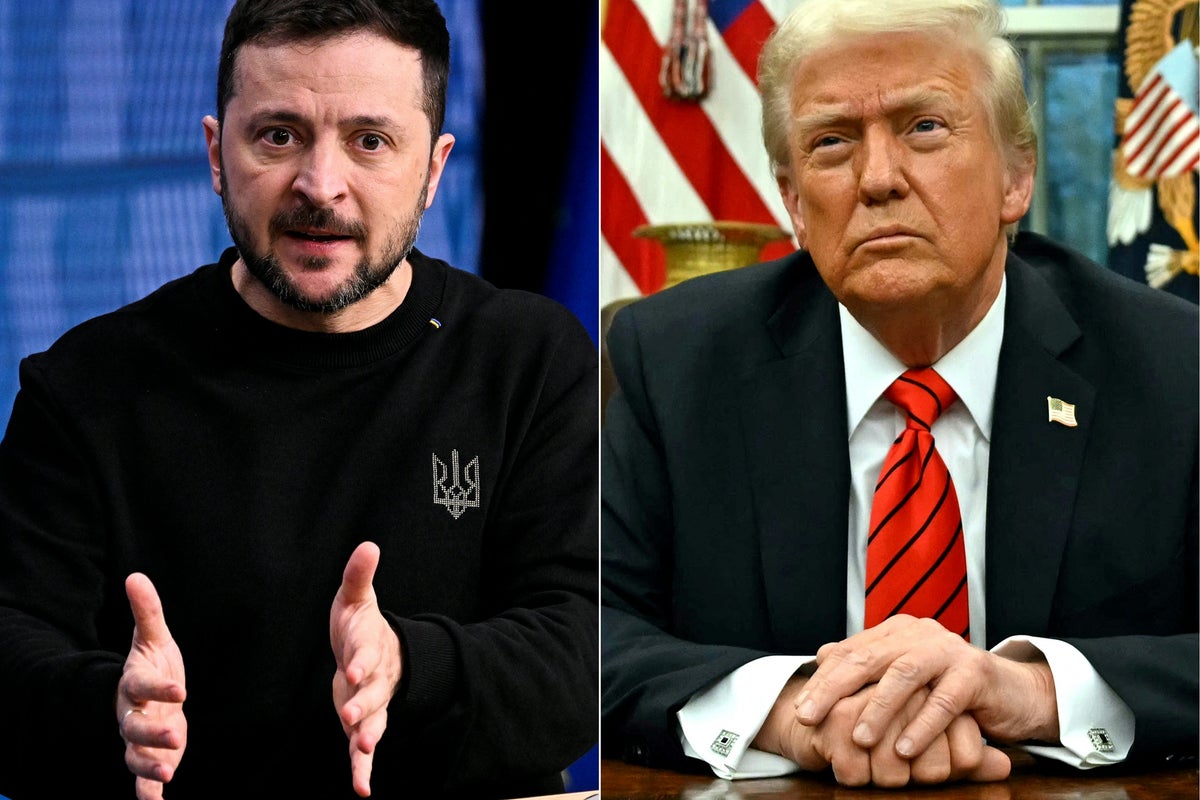It appeared to have been an act of silliness. A deputy Ukrainian prime minister getting ahead of herself by tweeting, and then untweeting, the dramatic news that her country was about to sign a gigantic minerals deal with the Trump administration.
Rather than a blunder, it may have been a masterful moment in what some officials are calling “toddler management”.
There is a rapidly evolving pan-European effort to gently massage Donald Trump’s ego as talks between Europe, US Ukraine and Russia reach a crucial stage.
Trump, and his envoys, have been charging ahead with plans to negotiate an end to Russia’s war with Ukraine on Russia’s terms. And to try to persuade Ukraine to agree a minerals exploitation deal that secures back payment on the US expenditure on the defence of Ukraine to the tune of $500 billion.
Olha Stefanishyna said that Ukraine was committed to a deal that has previously been reported to give the US a staggering stake in the profits from Ukraine’s minerals.

She said on X that it was likely to be signed soon and that that president Volodymyr Zelensky was prepared to travel Washington to put his pen to the contract.
Her post was taken down a few minutes later. But the signal was sent to Washington – and echoed almost simultaneously by Boris Johnson, who was in Kyiv at the same time – as senior government and EU officials meet on the third anniversary of Russia’s full scale invasion.
Stefanishyna is in charge of European and transatlantic relationships and is responsible for the day-to-day relationship between Kyiv, Europe and America.
“Ukrainian and US teams are in the final stages of negotiations regarding the minerals agreement. The negotiations have been very constructive, with nearly all key details finalized,” Stefanishyna wrote on X.
“We hope both US and UA leaders might sign and endorse it in Washington (at) the soonest to showcase our commitment for decades to come.”
A source close to the negotiations told The Independent that there was “no chance” of a deal resembling the US proposal as it would have to be ratified in Ukraine’s parliament.
But the deputy PM’s deleted post and Johnson’s intervention may be sugar coating for what Trump will see as the unpalatable dish of European unity that has emerged in Kyiv after two weeks in which, as Keir Starmer said, the US president had “changed the global conversation”.
Last year, according to sources, the UK put considerable effort into trying to figure out Trump’s diet and to predict when his blood sugar was low because it was believed he could be most aggressive and anti-Ukraine when hungry.
Diplomats and ministers were carefully guided to try to engage him to think positively about Ukraine in these low-sugar moments.
Similarly Trump is widely seen as easy to offend, quick to fire off insults, but deeply susceptible to the need to feel that he has “won” at least part of any argument.
So while Zelensky has so far rejected the mineral deal and refused to cede rights to profits that would flow to the US for many generations, his deputy prime minister and other officials have been signalling that at least some kind of deal may be imminent.
Trump has claimed that Ukraine owes the US for $350 billion of spending in defence of the country. In fact the US has spent about $120 billion, of which half has been on military aid – mostly weapons which were made in the US.
Starmer is due to travel to DC later this week. He has taken a firm but diplomatic stand against the new US. He told the Kyiv conference of leaders and heads of government that the UK and EU was dialling up the pressure on Russia with additional sanctions, the UK had committed a record £4.5 billion in military aid, and that the G7 should do more to pressure Putin.
Trump, meanwhile, has said he wants to normalise relations with Russia. His officials have talked of lucrative economic exchanges in the near future. He has said that Ukraine must give up on its demands to get all its territory back and on joining Nato.
In Kyiv, the president of the EU Commission, Ursula von der Leyen, echoed Starmer’s support of Zelensky: “A free and sovereign Ukraine is not only in the European interest, but it is in the interest of the whole world.
“The autocrats around the world are watching very carefully whether there’s any impunity if you violate international borders or invade your neighbour, or if there is true deterrence.”
Trump won’t be offended by this statement as it refers to Putin, not him. He will be further encouraged by Europe’s growing commitment to funding its own defence within Nato.
The US President meets French President Macron on Monday and Starmer later in the week. The sense that negotiations over Ukraine’s mineral riches may be going his way, diplomats hope, may satisfy his appetite to win so he may soften his anti-Ukrainian attacks elsewhere.

